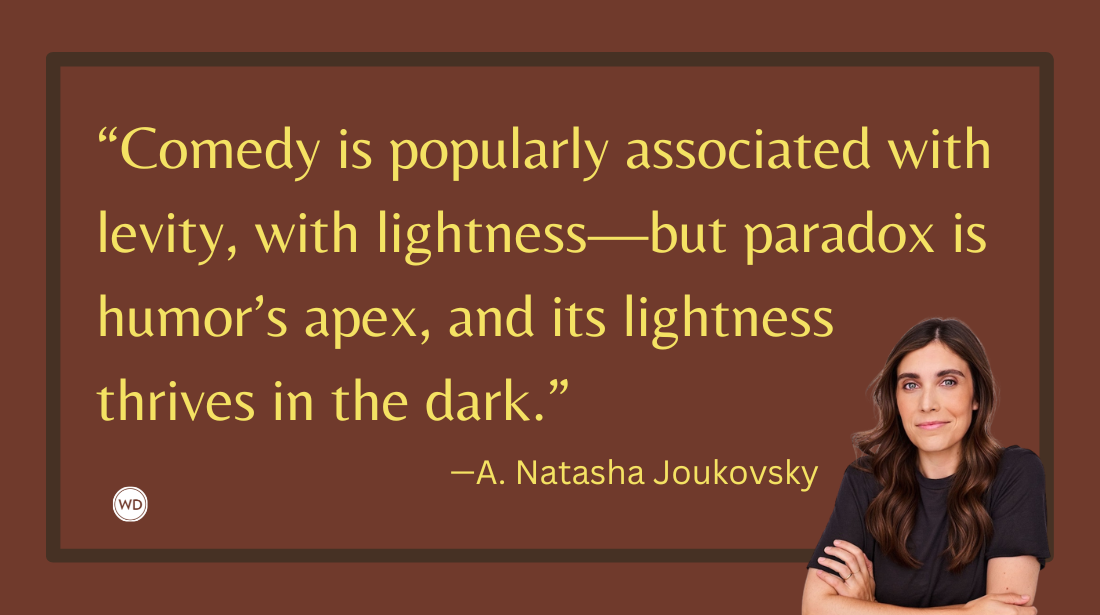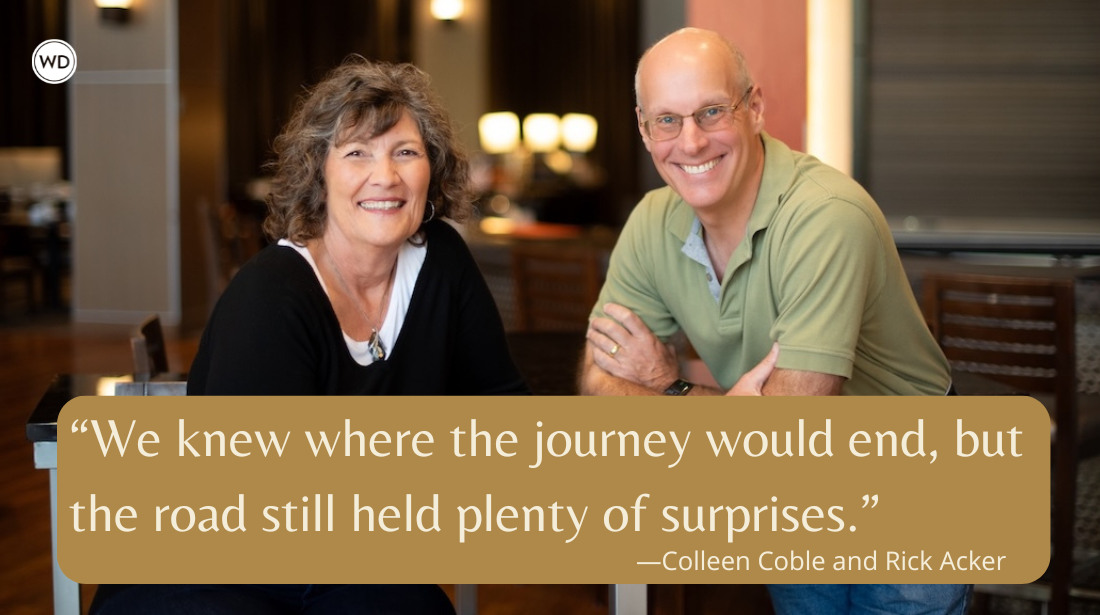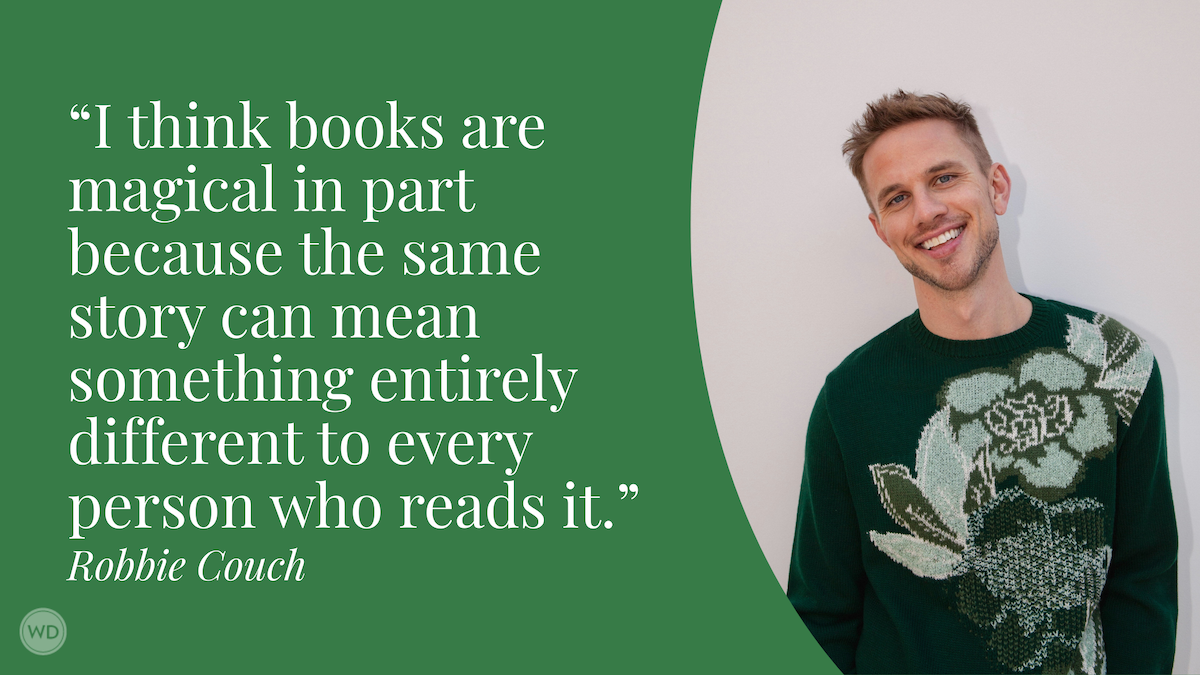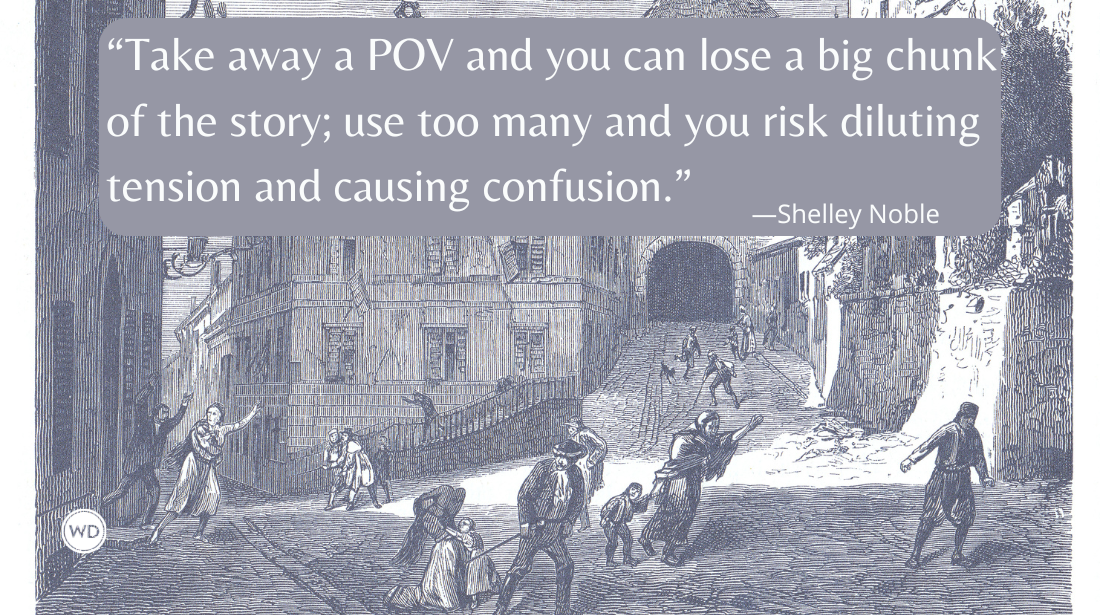The Page or The Stage: The Differences in Writing Novels vs. Scripts
Award-winning playwright and novelist Leslie Liautaud breaks down the differences in writing novels vs. scripts, or The Page vs. The Stage.
The first time I stepped on stage, I was five years old. I might forget my anniversary or what I had for breakfast, but I will never forget the feeling the first time I performed in front of an audience. My role was “Little Girl” in ANNIE GET YOUR GUN. I remember that I had to wait for the lead actor to say, “Get out of here, little girl!” three times before running off stage. I remember being extremely nervous I would lose track of the prompts. I remember my eyes darting out to the audience and finding a sea of strange faces. But mostly, I remember being elated. Suffice it to say, I was hooked. From that performance on, I worked as an actor on stage and TV for the following 20 years.
I hadn’t ever considered becoming a playwright until my early 30s when, at a dinner party, a man recounted the love story behind the Taj Mahal. Immediately, I thought, “Why isn’t this a movie? Or a television series??” It was at that dinner I decided to write a script about Shah Jahan and Mumtaz Mahal. I poured over history books and articles and bled the epic love story onto page after page. When I finished, I held the script delicately in my hands like a newborn baby. It embodied a fresh creative energy that I hadn’t felt in years. Make no mistake, I had written what is quite possibly the worst script ever written in the history of writing. But I had done it! I had written a script. It was abundantly clear I knew nothing about the technicalities of writing a screenplay. However, I knew stage plays—the formatting, the structure, the heartbeat—like the back of my hand.
Time went on and after 15 years of writing for the stage and after the production of several full-length dramas, I decided to challenge myself by writing a novel. Much like screenplays, I was starting at ground zero. But I wasn’t worried, as I was an avid reader. I figured, “I’ll just write the story, expanding on my knowledge of dialogue, add some descriptors, and voila!” But voila, it did not. I found myself in the same predicament of inexperience I had been in with attempting to write a screenplay. While some of the practices and techniques I had honed as a playwright were valuable, there was much to learn.
As creative and curious artists, we are constantly experimenting with new techniques and approaches which keeps art in a constant state of flux. That said, after an ongoing career as a playwright and with my second novel, Butterfly Pinned, set for May publication, I can state with all certainty that there remain distinct and stark differences between writing a novel and writing a play.
Format
Formatting is the most obvious of the differences, but it is the foundation. A novel gives you free reign in chapter length and, in most cases, the only parameter you should abide to is writing in paragraph form. Plays, however, must be formatted into a preexisting, specific script form. There’s no getting around it.
Consider your script as an operating manual for the actors, director, set designer, etc. It needs to be cohesive, so all parties remain on the same page. (Pun intended!) The easiest way to achieve this is by using software designed to format for you, guiding you through dialogue, stage directions, and scene changes.
There are several reliable companies who offer formatting software specifically for playwrights, and which one is best for you comes down to personal taste. Some popular companies include Celtx, WriterDuet, and Trelby. My personal preference is Final Draft, which I’ve been using for over 20 years.
Setting
Again, the novel lends itself to more freedom when dealing with the setting of your story. It can include car crashes, explosions, and may span the globe. With a novel you can take your time describing the details of an expanse of land or the rich history of an ancient city. With a play, what you can convey beyond dialogue is minimal.
The main restriction is physical space. You must contain the setting to a stage. Unless the play is a big budget Broadway extravaganza, pyrotechnics, multiple scenery changes, and ornate sets are unrealistic. Rule of thumb is minimal is best. Most often, a stage production will have a hired set designer, so your sole job is to convey the setting you desire through the dialogue and stage directions.
Content
A novel offers you a wonderful opportunity to tell a multi-layered, in depth look at the world through the lens of one character, many characters, or as an observer. A reader can hear inner monologues and passing thoughts of the characters. A novel allows narration to guide a reader through the story, gently pushing and pulling whichever direction you, the writer, intends.
A play relies solely on dialogue and action to convey the story. Every spoken word must count, and unspoken words carry as much weight. I like to think of plays as deep dives into human psychology. Where a novel can be either plot or character driven, a play is, with few exceptions, character driven.
And your character driven story must be succinct. While a novel has the breadth of 400 pages to express the Hero’s Journey, the psychological voyage in a play must take place in approximately 80 pages. Every line of dialogue and every stage direction must directly correlate to a particular character’s conscious or unconscious motives.
End Result
Whether you finish writing your novel or writing your play, please give yourself a pat on the back. It’s a huge accomplishment!
Naturally, your next step is to share your work of art with friends, family, or the world at large. This, too, differs when speaking of novels vs. plays. In the ever-changing landscape of publishing, there are now several outlets to share your book. Self-publishing is a wonderful option for those who are interested in a small batch of copies or for those brave enough to handle the entire process of selling books themselves. Hybrid publishing is another route for those who still would like to maintain control of the book itself but would like help in the physical publishing and distribution. And for those with perseverance, after obtaining an agent, traditional publishing is an option.
For plays, publishing is possible, but it is not the end game. Production is the goal. As with novels, there are many roads to production. I began my career by lending a script to a local community theatre. They did not have to pay a royalty fee, and I was granted live productions to gauge what worked and what didn’t in my writing. It was a win-win for all. Playwrights can submit to local and regional theaters. You may even put sheets up in the backyard, or apartment basement, corral some willing friends, and stage your own low budget (free!) production.
Whether you choose to write a novel or write a play, I wish you joy in telling your story!
Check out Leslie Liautaud's Butterfly Pinned here:
(WD uses affiliate links)









